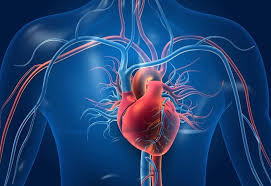
Healthy Habits Create Healthy Heart
Worldwide, heart disease and strokes are the leading causes of death for people. But there is good news on this point, too. About 80 percent of all conditions of cardiovascular disease are preventable. You can reduce your risk markedly by making some changes to your lifestyle including doing some things that are easy, simple, and even enjoyable. There is what you need to know about heart health, along with some of the best ways to improve and protect yours.
The heart is beating continuously inside the chest throughout human life without any halt. The heart can be influenced by various diseases like coronary artery disease, cardiac muscle disease, disorders of heartbeat, sudden cessation of the heart beating, high blood pressure, and its results. Therefore, one should know some basic preventive measures to protect heart health. Although the prevention aspect of heart problems is very vast, the following are some noteworthy salient recommendations to keep your heart healthy.
Start the Change
Cardiovascular diseases are intricately connected to your lifestyle choices. There are several factors that affect the heart such as age, ethnicity, family history, etc. There is nothing you can do about these factors for heart health. However, there are many things you can do for a healthy heart, except in cases that cannot be prevented. Consciously choosing to live a heart-healthy life not only increases longevity but also guarantees a more productive and happy life, free of the burden of diseases.
You know that eating a healthy diet and exercising regularly are essential habits for a healthy heart. However, did you know that you could still be damaging all your efforts with some surprisingly common bad habits? Yes, certain risk factors like getting older or having a family history of heart disease cannot be changed. But you do have control over some significant risk factors such as high blood cholesterol, high blood pressure, smoking, excess weight, diabetes, and physical inactivity. Many people have more than one risk factor. To safeguard your heart, it is best to lower or eliminate as many bad habits as you can because they tend to “gang up” and worsen each other’s effects.
Quit Smoking for a Healthy Heart
One of the best things you can do for your health is not to prefer tobacco in any form. Tobacco use is a hard-to-break habit that can slow down, make the sick, and shorten life. One way it does this is by contributing to heart issues. If you do not smoke or use tobacco products, do not ever start. There is no such thing as a safe tobacco product in the world.
If quitting smoking or tobacco is a challenge for you, ask the health teams for help to kick the habit using proven methods. Do not just swap one tobacco source for another tobacco product. In daily life, you should try to avoid secondhand smoke, too!
In fact, researchers examining the relationship between cigarette smoking and smoking cessation on mortality during a decades-long perspective analysis of over 100,000 people discovered that approximately 64% of deaths among current smokers and 28% of deaths among former smokers were attributable to cigarette smoking. This analysis also reported that much of the heart disease risk due to smoking might be drastically lowered after quitting.
Additionally, the risk for all-cause mortality, that is, death from any cause reduces to the level of a “never-smoker” 20 years after quitting. The nicotine that tobacco products deliver is one of the most addictive substances in the world. That makes tobacco use one of the most authoritarian bad habits to break. However, do not get discouraged; many smokers quit for heart health!
Limit Alcohol Consume
Drinking too much alcohol can raise blood pressure, and raise cardiomyopathy, stroke, cancer, or other diseases. Alcohol can contribute to high triglycerides and produce irregular heartbeats. Excessive alcohol consumption may cause to obesity, alcoholism, suicide, and accidents. However, there is a cardioprotective influence of moderate alcohol consumption.
If you drink, restrict your alcohol consumption to no more than two drinks per day for men and no more than one drink per day for women. Specialist cardiologists are not recommended that nondrinkers start using alcohol or that drinkers increase the amount they drink.
Feed Yourself and Your Heart Healthy
Who wants to have a fat-dripping, artery-clogging eating style? Would you not prefer a fresh, colorful salad for a healthy heart? You do not have to become a full-on vegetarian or vegan unless you or your doctor decide that is what is best. However, striving to contain more home-cooked, veggie-filled, low-fat meals in your diet is a good decision.
Although fast food seems to be a daily attraction, you can choose your meals for a healthy heart. You can try a baked potato with meatless or low-fat bean-filled chili for a filling, satisfying, and heart-healthy meal. Do not have any time for breakfast? Set your on low with a combination of oatmeal, water, cut-up apples, and walnuts for a good-for-your-heart breakfast that is ready when you wake up.
Keep the Blood Sugar and Cholesterol in Healthy Range
Be sure to make your doctor aware that you are choosing to start making healthy changes to your lifestyle. Let them know that you hope to not always have to rely on medication to control your type 2 diabetes or elevated cholesterol. Although you may have to depend on medications at first, with the right amount of consistent healthy habits, it may become drugs less necessary for maintaining healthy blood levels.
Quality and Better Sleep
It is essential to get at least six hours of sleep at night. When your sleep is interrupted, your blood pressure and heart rate increase. Therefore, you have less energy during the day. When you get good sleep, your body can rest, and your blood pressure or heart rate can regular. This means your heart can rest. Being rested helps, you have more strength during the day to fight whatever stressors occur.
Protect the Healthy Weight
Being overweight, especially around the middle of the body raises the risk of heart disease. Excess weight can lead to conditions that raise the chances of developing heart disease involving high blood pressure, high cholesterol, and type 2 diabetes. The body mass index (BMI) uses height and weight to detect whether a person is overweight or obese.
A BMI of 25 or higher is considered overweight and is generally associated with higher cholesterol or higher blood pressure. This means an increased risk of heart disease and stroke. Waist circumference also can be a good tool to measure how much belly fat you have. The risk of heart disease is increased if the waist measurement is greater than:
40 inches (101.6 centimeters, or cm) for males
35 inches (88.9 cm) for females
Even a small weight loss can be beneficial for heart health. Reducing weight by just 3% to 5% can help reduce certain fats in the blood (triglycerides), lower blood sugar (glucose), and decrease the risk of type 2 diabetes. Losing even more weight helps lower blood pressure and blood cholesterol level.
Better the Mental Health and Heart
Shorter days, darker nights, and more time indoors can cause you to feel low. The lack of sunlight also means that many of you are not obtaining the right amount of Vitamin D, which can also contribute to low mood. It is advised that we all consider taking a 10-microgram Vitamin D supplement in autumn and winter. This is even more essential if you do not go outside much or cover most of your skin.
Being active and keeping in touch with friends and family can help improve your mental health. Many people also find practicing mindfulness or meditation useful. Why not try putting 10 minutes a day in your diary? Managing stress is particularly important in the winter, as too much can influence how your immune system works. Hormones from stress may suppress immune function and raise blood pressure. It might also lead to your reaching for sugary snacks and drinking too much alcohol, which will affect your overall mood.
The Study of Healthy Heart
A recent study published in the Journal of Cardiology found a strong association between regular exercise and heart health. The study, which followed over 10,000 participants for a decade, revealed that individuals who engaged in at least 150 minutes of moderate-intensity exercise per week had a significantly lower risk of developing heart disease. This emphasizes the importance of incorporating physical activity into your daily routine for maintaining a healthy heart.
Laughing Heart is Healthy
Just as we know that stress, anxiety, and depression have a negative impact on the heart, we also know that laughter provides the heart with an incredible health boost. Analyses have shown that the simple act of laughing not only helps keep those harmful, negative emotions at bay, it also decreases pain and inflammation and may even increase the body’s levels of good cholesterol. It has even been proven that blood vessels expand with laughter, allowing blood to more freely flow throughout the body and to the heart.
Conclusion
Acquiring big lifestyle changes is not an easy feat to achieve overnight. However, the small changes in habits introduced over time can add years to your life and save thousands from your medical bill. Set personal ideals and find the motivation and support to keep you going on the path of better lifestyle choices. These small steps will accumulate into a massive transformation you can acquire realistically. You are not alone in protecting your heart and fighting heart disease. Now take a step to get in contact with Healthy Türkiye.




